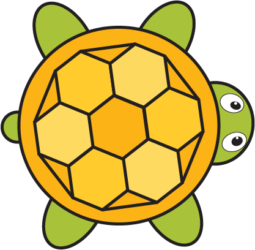I am happy to announce that we have successfully published the Hexa-Trex Puzzle app on iOS. It is free to download so feel free to download and give us some reviews! Have fun HEXING!!!
Student misconceptions in physics – overview and how they are organized.

Introduction
Some things are easier to learn than others. Piaget, one of the fathers of the constructivist movement, talked about two types of learning: assimilation and accommodation (Atherton, 2009). Assimilation and accommodation are the two complementary processes through which awareness of the outside world is internalized (Atherton, 2009). Continue reading “Student misconceptions in physics – overview and how they are organized.”
Teaching your child to be bilingual

All my children are multilingual. My first born, now seven years old, speaks, reads, writes (all fluently) in three languages (Polish, English, and French). My second is not far behind, he can speak both Polish and English and is now in French immersion kindergarten learning French. My third is just learning to speak, but he knows both Polish and English.
Continue reading “Teaching your child to be bilingual”Using Manipulatives in the Classroom

One of the most common mistakes I’ve noticed with my son’s swim instructor, is that the kids don’t listen to her, especially when she gives them a new “manipulative”. For example, first she gives all the kids swimming boards, then she tries to explain what they are to do with them (for example, kick while breathing to the side). Unfortunately, once they have their boards, the students stop paying attention, and instead start playing around with them.
Continue reading “Using Manipulatives in the Classroom”Under the Radar Games (2021) – Hexa-Trex puzzle chosen

The Hexa-Trex puzzle game was selected as one of “Under the radar games of 2021” by GamesKeys.net. Here is what they write:
“Each year we release under the radar edition, in this year’s edition, we have selected some really cool games, the games are selected by testing the game play, all games have high quality graphics. Most of the games in this list are very addictive and will keep you busy for a very long time.”
Check out the article and complete list here: Under The Radar Games on Android in 2021
Are our students missing out on play? If so, they are also missing out on learning.
Recently I read an article about Natural Math. It is a different way of approaching teaching / learning math for young children. Here is an excerpt of the article:
“The familiar, hierarchical sequence of math instruction starts with counting, followed by addition and subtraction, then multiplication and division. The computational set expands to include bigger and bigger numbers, and at some point, fractions enter the picture, too. Then in early adolescence, students are introduced to patterns of numbers and letters, in the entirely new subject of algebra. A minority of students then wend their way through geometry, trigonometry and, finally, calculus, which is considered the pinnacle of high-school-level math.
What does it mean to be a parent?

This past June I was asked by the grade 12 students to make a speech at their graduating ceremony. I taught a lot of them physics, but this year, my son was also graduating from high school and he was a friend to many of these students, so this was a natural ask. I was honored, nonetheless.
I thought long and hard what I would say, and finally I decided that explaining to them what it means to be a parent would be my focus. I thought I would share the speech with you, although I took out any of the personal stuff, that only my students would understand. Ok, so here is my speech:
Continue reading “What does it mean to be a parent?”Subject Centered Teaching vs. Student Centered Teaching

When I took my education degree, there was a lot of talk about Student-Centered teaching versus Subject-Centered teaching versus Teacher-Centered teaching. I was very young and fresh out of my physics / math degree (where the “real learning” took place); I felt that all this talk on “Teaching” was mumbo-jumbo. I really didn’t care about whether I taught the subject, or whether I taught the students. I just wanted to get my certificate so that I could teach math and science in high school. The education degree itself was, for me (the young me) a huge waste of time.
Continue reading “Subject Centered Teaching vs. Student Centered Teaching”Hexa-Trex App (on Android)
Bombardment of Information: are we overstimulating our children?

The other day we went to the Zoo with my boys (a five year old and a three year old). In the car, we were talking about which animals the kids would really like to see, and what animals would be there, etc. I was pumped because the kids love animals and showing them an elephant in a book and in real life doesn’t compare. In a book, there’s no movement, no comparison in size with the surroundings, no texture. My five year old son was especially excited, and he had a million questions for me about the zoo and the animals: “How do the giraffes drink water when they’re so tall? Do giraffes have a red tongue or a black one, like daddy says?” etc.
Continue reading “Bombardment of Information: are we overstimulating our children?”



